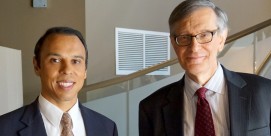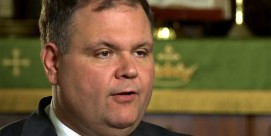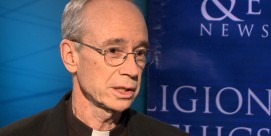Steve Monsma: Good As Far As It Goes
Mitt Romney gave a powerful speech in which he forcefully defended religious liberty and related his own firm commitment to it. He insisted that no authorities of his church would exert influence on his decisions as president. For anyone acquainted with Romney and the Mormon Church this was not surprising, but nonetheless reassuring. He also made clear that he does not believe that religious freedom requires a public square stripped of all references to religion, and that doing so could be seen as establishing secularism as a new, state-supported religion. All this was to the good. Anyone who might have felt that being a Mormon in and by itself disqualified one from serving as president of all of the American people should be reassured by what Romney had to say.
But there is one promise Romney made at the beginning of his speech on which I thought he later did not adequately deliver. This is where he said that he “will offer perspectives on how my own faith would inform my presidency, if I were elected.” He later explained how his faith has instilled in him certain moral values that he shares with all persons of faith, “the great moral inheritance we hold in common,” as he put it. This is good as far as it goes. But is there not something more and deeper? Surely, each faith has more specific beliefs and values that shape how its adherents view the world, including the world of public policy issues and debates.
The Mormon tradition is well known for its emphasis on strong, traditional families and hard work, and on its opposition to abortion and same sex marriages, as well as other distinctive beliefs and values. How do such beliefs work to mold the development of his positions on public policy issues? This Romney did not seek to explain. He at one point referred to “the Creator,” but did not explain how his seeing God as the Creator shapes his understanding of environmental issues, or creation care issues as some of us like to put it.
All of us have been shaped by our deepest beliefs, by our faith. I believe Mitt Romney — as do all of the candidates for president — have an obligation to explain how their various religious faiths have worked in their lives to inform their understanding of the world and shape the public policy positions they take. Romney did some of that today, but I am still looking for a fuller discussion of how his own faith would inform his presidency, if he were elected.
Steve Monsma as a senior research fellow at the Henry Institute for the Study of Christianity and Politics at Calvin College and professor emeritus of political science at Pepperdine University. His book HEALING FOR A BROKEN WORLD: CHRISTIAN PERSPECTIVES ON PUBLIC POLICY will be published in March 2008 by Crossway Books.







